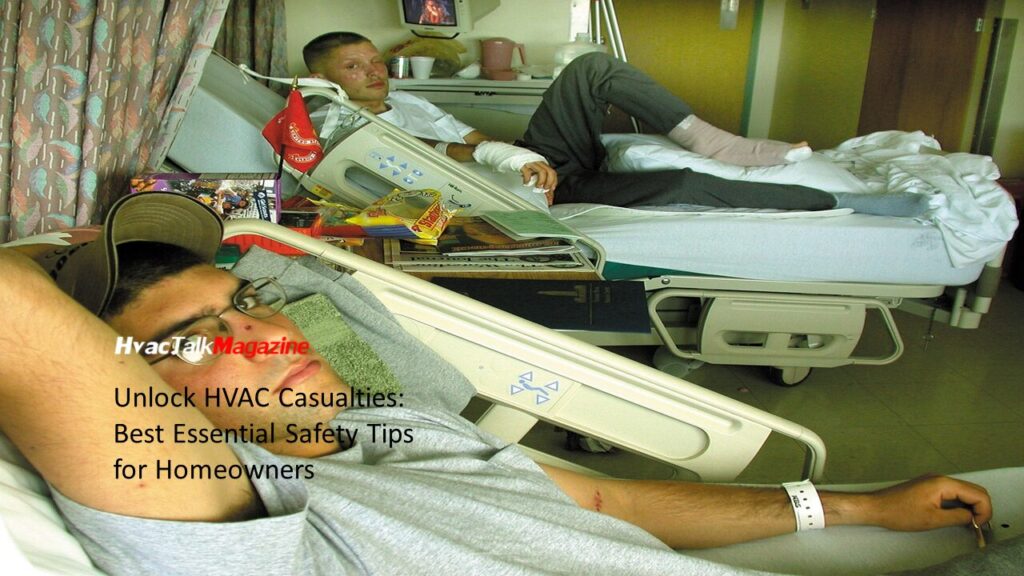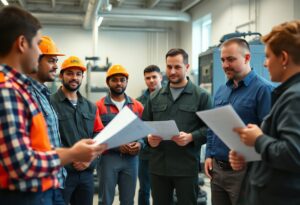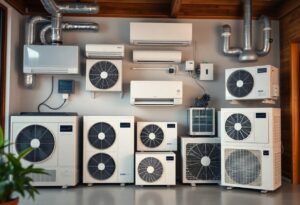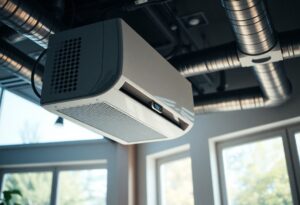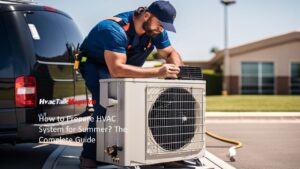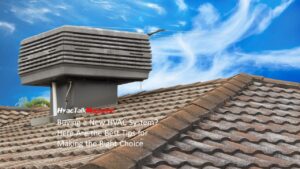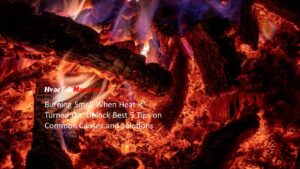Unlock HVAC Casualties: Best Essential Safety Tips for Homeowners
Your HVAC (Heating, Ventilation, and Air Conditioning) system plays a crucial role in maintaining a comfortable and healthy environment in your home. However, improper maintenance, installation errors, and neglect can lead to serious safety issues and casualties. This article provides safety tips to prevent HVAC casualties, protect your home, and ensure your system runs efficiently.
HVAC Casualties: Common HVAC Injuries
Understanding the common types of HVAC injuries can help you take preventive measures to avoid them. Here are some of the most frequent injuries related to HVAC systems:
1. Electrical Shocks
HVAC systems involve various electrical components that can cause shocks if handled improperly. These shocks can result in severe injuries or even fatalities.
2. Burns
Components like heaters, furnaces, and certain electrical parts can reach high temperatures. Contact with these hot surfaces can cause burns.
3. Cuts and Lacerations
Working with metal components such as ductwork and sheet metal can lead to cuts and lacerations if proper protective gear is not used.
4. Respiratory Issues
Exposure to dust, mold, and other airborne contaminants during maintenance or repair work can lead to respiratory problems.
5. Falls
HVAC technicians often work on rooftops, ladders, and in confined spaces, increasing the risk of falls and related injuries.
MIContractorTraining Overall: 10% off any Michigan Contractor Training CE or Pre-license courses using “Deal22”. Click to see online courses.
HVAC Casualties: Hazards of HVAC Systems
Being aware of potential hazards associated with HVAC systems is crucial for preventing accidents and maintaining safety. Some common hazards include:
1. Carbon Monoxide Leaks
A malfunctioning furnace or boiler can release carbon monoxide (CO), a colorless and odorless gas that can be deadly. Regular inspections and CO detectors are essential for safety.
2. Refrigerant Leaks
Refrigerants used in air conditioning units can be harmful if inhaled. Leaks not only pose health risks but also impact the efficiency of your system.
3. Electrical Fires
Faulty wiring, overloaded circuits, and improper installations can lead to electrical fires. Ensuring that your HVAC system is installed and maintained by a licensed professional is crucial.
4. Poor Ventilation
Inadequate ventilation can lead to the buildup of harmful pollutants and allergens, affecting indoor air quality and health.
HVAC Casualties: HVAC Emergencies
HVAC emergencies can occur suddenly and require immediate attention. Some common emergencies include:
1. System Failure During Extreme Weather
A complete system breakdown during extreme heat or cold can pose serious health risks, especially to vulnerable individuals.
2. Gas Leaks
Natural gas leaks from furnaces or boilers are extremely dangerous and require immediate evacuation and professional intervention.
3. Electrical Failures
Sudden electrical failures can result in fires or other hazards, necessitating prompt attention from an electrician or HVAC technician.
4. Frozen Pipes
In winter, pipes connected to your HVAC system can freeze and burst, causing water damage and disrupting heating.
HVAC Casualties: What Damages HVAC Systems?
Preventing damage to your HVAC system is key to maintaining its efficiency and longevity. Common factors that can damage HVAC systems include:
1. Lack of Maintenance
Neglecting regular maintenance tasks such as cleaning filters, checking refrigerant levels, and inspecting components can lead to system failures and reduced efficiency.
2. Improper Installation
Incorrect installation can cause various issues, from inefficient operation to safety hazards. Always hire licensed professionals for installation.
3. Ignoring Repairs
Ignoring minor issues can lead to major problems over time. Address any unusual noises, leaks, or performance issues promptly.
4. Overworking the System
Constantly running your HVAC system at maximum capacity without breaks can lead to wear and tear. Use programmable thermostats to manage usage effectively.
5. Blocked Airflow
Obstructed vents, dirty filters, and clogged ductwork can restrict airflow, causing the system to work harder and increasing the risk of damage.
HVAC Casualties: Best Practices for HVAC Safety and Maintenance
To ensure a safe and efficient HVAC system, follow these best practices:
1. Regular Maintenance
Schedule professional maintenance at least twice a year, ideally before the start of the heating and cooling seasons. This includes cleaning, inspections, and necessary repairs.
2. Replace Filters
Change air filters every 1-3 months, depending on usage and manufacturer recommendations. Clean filters ensure better airflow and system efficiency.
3. Install Carbon Monoxide Detectors
Place CO detectors near your HVAC system and in sleeping areas to alert you to any dangerous leaks.
4. Keep the Area Clear
Ensure that the area around your HVAC unit is free from debris, plants, and other obstructions that can hinder airflow.
5. Educate Your Household
Teach everyone in your household about HVAC safety, including how to recognize signs of trouble and when to call for professional help.
6. Use Programmable Thermostats
Programmable thermostats can help you manage your HVAC system more efficiently, reducing strain and saving energy.
HVAC Casualties: Conclusion
By following these essential safety tips and best practices, you can prevent HVAC casualties, protect your home, and ensure your system operates efficiently. Regular maintenance, prompt repairs, and professional inspections are key to a safe and comfortable living environment. Need to Prevent HVAC casualties! Start implementing these tips today to enjoy a worry-free, well-functioning HVAC system.
Tip of the Day
Upgrade to the best HVAC systems with inbuilt safety features! Ensure your home’s comfort and security with top-rated units designed for efficient performance and enhanced safety. Don’t compromise on quality—choose an HVAC system that prioritizes your well-being.
👉 Order now on Amazon and experience peace of mind with the safest and most reliable HVAC systems available. Enhance your home comfort today!
Follow Us on Google Chrome
To get started, switch to Google Chrome Browser
-
- Already on our site
- Top right, tap the 3 dots
- Bottom right, tap follow
- You are done.
Learn more and join our mailing list for updates.
This post has been written by Team HVAC Talk Magazine. Stay informed and connected with the latest in HVAC—join us for expert advice, troubleshooting tips, and news updates. Don’t miss out, follow us now! #HVACExperts #HVACTips #StayInformed #HVACProTalk
